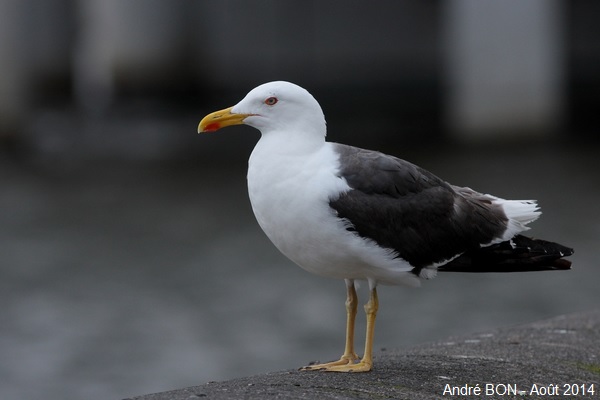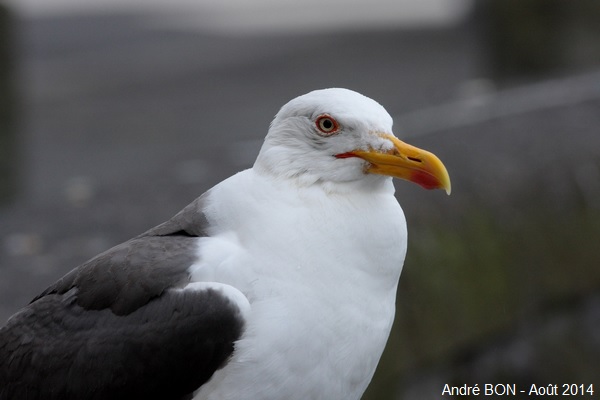


| Lesser Black-backed Gull (Larus fuscus (Linnaeus, 1758)) |



|
|
Scientific name: Larus fuscus (Linnaeus, 1758) Common name: Lesser Black-backed Gull French name: Goéland brun Order: Charadriiformes Family: Laridae Size: Body size: 50 to 61 cm; wingspan: 124 to 128 cm; Weight: 650 to 1000 g Habitat: Coastal cliffs, estuaries, marshes, lakes and reservoirs. Food: Omnivorous : Rubbish and carrions but also fishes, molluscs, worms, etc. Nesting: Lesser Black-backed Gulls nest in colonies along coasts or on lake banks. The nests are built on the ground and there are generally three eggs per clutch. Migration: Lesser Black-backed Gulls winter in western Europe, in eastern Mediterranean regions, in western Africa, central Africa and eastern Africa depending of subspecies. Geographic area: European coasts, from Portugal in the south, north to Iceland and to the Barents Sea. |
The Lesser Black-backed Gull has a dark grey to brown upper side whose colour varies depending on subspecies. The tip of the wings is black. Larus fuscus fuscus nesting in Norway, Sweden and Finland to the Barents Sea shows a very dark, almost black, upper side. Larus fuscus graellsii nesting in Greenland, in Iceland, in the Faroe Islands and in western Europe shows a lighter coloured upper side. Larus fuscus intermedius nesting from northern France to southern Scandinavia, shows, as indicated by its name, an upper side with an intermediate colour. Let's also mention the Siberian Gull (Larus fuscus heuglini) with a rather dark upper side and the Steppe Gull (Larus fuscus barabensis), nesting in the steppes of central Asia, with a lighter coloured upper side. The head and the remaining parts of the body are white. The legs are yellow to orange yellow. The bill is yellow and rather thin. It shows a red spot on the lower mandible. The Great Black-backed Gull (Larus marinus) with a dark upper side, differs by its larger size, its stronger bill and its pink legs. |
| [To know more about the Lesser Black-backed Gull] [Next picture] [Top] |

|
Here is one bird I think is belonging to the Larus fuscus graellsii subspecies based on the location. But the upper side appears rather dark. |
| [To know more about the Lesser Black-backed Gull] [Next picture] [Previous picture] [Top] |

|
Closer view so that you can better see the shape of the bill and the orange orbital circle. |
| [To know more about the Lesser Black-backed Gull] [Previous picture] [Top] |

|
Juvenile. |